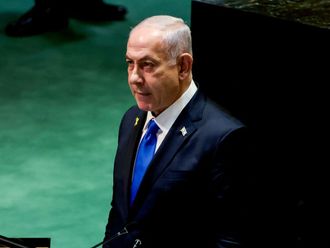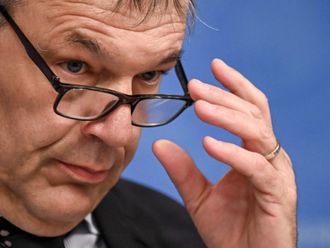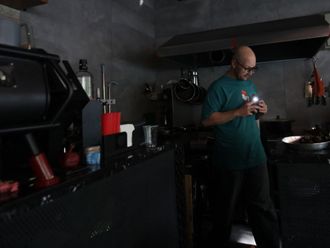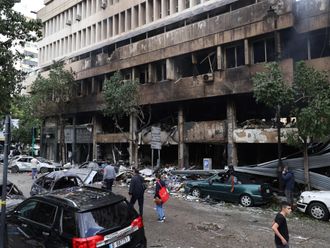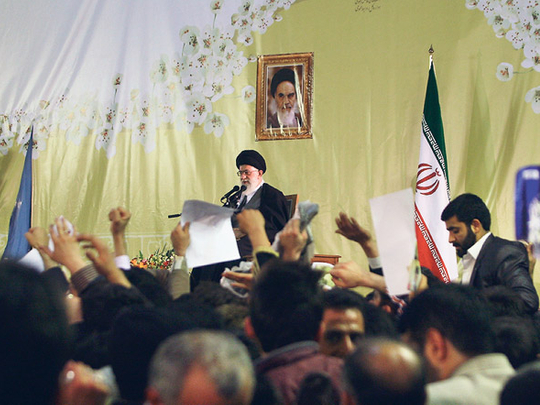
Tehran: Iran's supreme leader sharply denounced the United States on Sunday, accusing it of plotting to overthrow its clerical leadership, in a chilly response to an overture by President Barack Obama for better cultural ties with Iran.
Ayatollah Ali Khamenei did not outright reject Obama's offer, saying Iran would keep an eye on Washington's intentions. But the supreme leader said that, so far, Washington's offers of engagement with Tehran have been a deception.
The exchange was a sign of how Obama's hopes for dialogue with Iran have broken down amid Tehran's rejection of Western demands over its nuclear programme and its heavy crackdown on the opposition following disputed presidential elections last June.
In his message, released on Friday night to coincide with the Iranian new year, Now Rouz, Obama told the Iranian people that the Americans want better cultural exchanges with Iran — but he also criticised the Iranian leadership for "turning its back" on US overtures.
Criticism of crackdown
Khamenei, who has the final say on all political matters in Iran, lashed back in a nationally televised address in an annual provincial visit to his hometown, Mashhad, telling the Americans, "You cannot speak about peace and friendship while plotting to hit Iran."
In particular, he denounced US criticism of the post-election crackdown. Iran has arrested thousands in the wake of widespread protests that erupted against Iranian President Mahmoud Ahmadinejad's victory in the June vote, which the opposition says was fraudulent.
Referring to Obama's message, Khamenei said, "We will examine the issue with sharp vision to determine if it really is a friendship hand and a friendly intention or hostile one in a deceptive framework."
He said that in response to past overtures, "we said that if they are extending a metal hand inside a velvet glove, we won't accept. Unfortunately, what we had guessed took place".
US support for the opposition proved that Obama's claims to seek dialogue were a deception, he said. "The new US administration ... said they are willing to normalise relations. But unfortunately in practice they did the opposite," Khamenei told a large crowd in the northeastern city of Mashhad, who several times broke into chants of "death to America" and "death to Obama".
"The US President called those street fighters civil rights activists," Khamenei said, referring to the protesters. "You talk of human rights and democracy ... then you take the side of a bunch of rioters and call this a civil rights movement. Aren't you ashamed of yourself?"
In his message, Obama said the US offer of diplomatic dialogue still stands, but that the Iranian government has chosen isolation.
EU takes up issue
European foreign ministers yesterday demanded an "end" to Iranian state censorship, warning they are ready to act on the "unacceptable" jamming of satellite broadcasts and internet controls.
Europe "calls on the Iranian authorities to stop the jamming of satellite broadcasting and internet censorship and to put an end to this electronic interference immediately", the European Union's 27 foreign ministers said in an agreed statement.
Ministers are "determined to pursue these issues and to act with a view to put an end to this unacceptable situation", they insisted.
Iranian authorities have cracked down on the media and arrested scores of journalists since anti-government protests erupted after President Mahmoud Ahmadinejad's disputed re-election last June.
The Islamic regime has also resorted to communications blackouts, targeting the BBC's Persian-language broadcasts among other programmes.
Nearly 70 foreign radio and television stations that transmit via the Eutelsat satellite to Iran were jammed on February 11, the 31st anniversary of the Islamic Revolution, they said.
The EU statement said that "deliberate" censorship meant Tehran was breaching commitments to "freedom of expression" as signed under the International Covenant on Civil and Political Rights.


